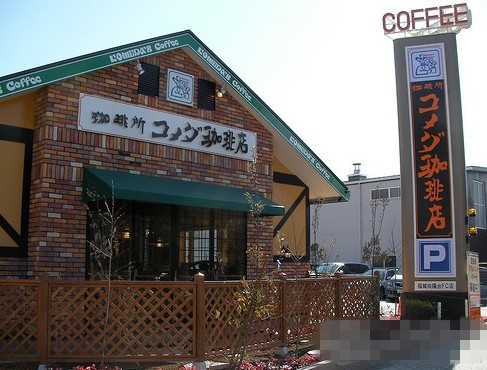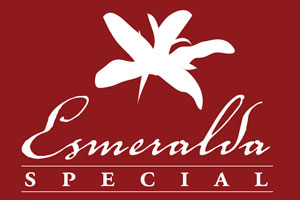Knowledge of common boutique coffee beans (single coffee)
Individual coffee is a kind of coffee made from beans produced in the country of origin, usually pure coffee without milk or sugar. Such as the famous Blue Mountain Coffee, Brazilian Coffee, Italian Coffee, Colombian Coffee. They are all individual products named after the origin of coffee beans. Mocha coffee and charcoal coffee are also individual products, but their names are quite special. Mocha is a port in Yemen. the coffee produced in this port is called mocha, but the coffee may come from different places, so each batch of mocha beans tastes different. The charcoal-roasted coffee is named because the Japanese first roasted coffee beans with charcoal. This kind of coffee does have a charcoal-roasted taste, which is not very strong, but the taste is pure, which may be related to the light eating habits of the Japanese.
1. The common items of coffee are as follows
(1) Blue Mountain Coffee: from Jamaica. Pure Jamaican Blue Mountain Coffee perfectly combines the unique sour, bitter, sweet and mellow flavors of coffee. The aroma is very rich, mellow and smooth, with long-lasting fruit flavor, forming a strong and attractive elegance, which is unmatched by other coffee. It can be said to be the best coffee.
(2) Colombian coffee: produced in Colombia, roasted coffee beans release a sweet fragrance, with sweet in acid and medium in bitterness, moderate concentration and long-lasting fruit aroma. It is very nutritious, highly balanced and sometimes nutty. Because of the appropriate concentration, it is also used in high-grade mixed coffee.
(3) Brazilian coffee: there are many kinds of coffee, most of which are moderately acidic, its sweet, bitter and mellow tastes are neutral, moderate concentration, smooth and special taste, known as the backbone of coffee, but also a very good blending bean.
(4) Italian coffee: it has a strong aroma and strong bitter taste, and a thin layer of coffee oil appears on the surface of the coffee, which is the source of the attractive aroma of Italian coffee. Suitable for those who pursue a strong sense of taste.
(5) Manning Coffee: produced in Indonesia's Sumatra Islands, full of grains, with a very strong flavor, spicy bitterness, people who especially like it will indulge in its bitterness. At the same time, it also has the taste of syrup and chocolate, while the sour taste is not prominent, but it has a strong mellowness, which is a favorite variety in Germany, and coffee lovers mostly drink it on their own. It is also an indispensable breed of mixed coffee.
(6) Java coffee: produced in Java, Indonesia, full-grained, spicy, relatively low acidity, delicate taste, good balance, is a delicate aromatic coffee.
(7) Costa Rican coffee: excellent flavor, smooth, strong acidity, high grade, with attractive flavor.
(8) mocha coffee: produced in Ethiopia, the beans are small and fragrant, its sour and alcoholic taste is strong, slightly alcoholic, spicy, moderate sweetness and special flavor. It is a well-known high-quality coffee, usually drunk individually.
(9) Guatemalan coffee: produced in Antigua, which has fertile volcanic soil, is one of the most famous coffee varieties in the coffee industry. The fertile volcanic soil creates a world-famous soft, mellow taste with a hint of tropical fruit. Rich taste, perfect coordination, plus a trace of smoke, more emphasis on its antiquity and mystery. Many coffee experts have commented that Guatemalan coffee is the best kind of coffee in Central and South America.
(10) Kilimanjaro Coffee: Kilimanjaro from Tanzania. A variety of coffee without acid, with a strong taste and is famous for its duet taste. Exquisite coffee elegant guest, want to feel exotic flavor, boil your taste. Tasting Kilimanjaro coffee is the best choice, the aroma and taste are enough to make the first-time coffee drinkers feel the endless taste of duet.
(11) Kona Coffee: from the Kona region of Hawaii, it is a rare species that can only be grown on volcanic slopes. Taste strong, mellow, and slightly with a kind of wine aroma, the flavor is very special. The selected Kona coffee has a moderate sour taste and a gentle and full-bodied taste, as well as a unique mellow flavor. As the output is decreasing, the price is catching up with Blue Mountain Coffee.
(12) charcoal roasted coffee: it is named after the Japanese who first roasted coffee beans with charcoal. This kind of coffee does have a charcoal-burning taste, but it will not be very strong. It retains the original taste of the coffee and has a pure taste, which may be related to the light eating habits of the Japanese.
(13) Costa Rican coffee: high-quality Costa Rican coffee is called "extra hard beans", which can grow above 1500 meters above sea level. Its particle size is very good, smooth and neat, high grade, excellent flavor. Local per capita coffee consumption is twice that of Italy or the United States.
(14) Kenyan coffee: Kenyan coffee contains every feeling we want from a good cup of coffee. It has a wonderful and satisfying aroma, balanced and delicious acidity, uniform particles and excellent fruit flavor. It is one of the most popular varieties in the industry.
(15) Cuban coffee: Cuban coffee has moderate granules, low sour taste, special flavor and intoxicating tobacco flavor.
2. Representative proportion of individual coffee beans
(1) Acid: 30% in Colombia, 30% in Brazil, 20% in Guatemala, 20% in Mocha
(2) bitter: 30% in Colombia, 30% in Brazil, 20% in Kilimanjaro, 20% in Robusta.
(3) thick: Colombia 40%, Guatemala 20%, Mantenin 20%, Brazil 20%
(4) soft: 40% in Colombia, 30% in Brazil, 20% in Mocha, 10% in Robsta

Important Notice :
前街咖啡 FrontStreet Coffee has moved to new addredd:
FrontStreet Coffee Address: 315,Donghua East Road,GuangZhou
Tel:020 38364473
- Prev

The coffee market in Japan is growing.
On August 16, according to Japanese media reports, Japan's domestic coffee market continues to expand, although the population is decreasing. By 2015, the consumption of coffee such as households and large chain stores has set a new history for three consecutive years, and the import of raw beans has also been increasing. Different brands of coffee in convenience stores actively participate in the market.
- Next

Coffee Manor Becomes New Favorite
This is how coffee is made, no wonder it tastes so good. Li Fatao, a tourist from Haikou, sits at Longyuan Coffee Manor in Xinglong Town, Wanning, tasting authentic Xinglong coffee. During the May Day holiday, many tourists choose to spend a leisurely and coffee-filled holiday in Xinglong. The coffee manor integrating viewing and experience has become a new favorite of tourists. coffee picking
Related
- Unexpected! Ruixing Telunsu lattes use a smoothie machine to foam milk?!
- % Arabia's first store in Henan opens into the village?! Netizen: Thought it was P's
- Does an authentic standard mocha coffee recipe use chocolate sauce or powder? Mocha Latte/Dirty Coffee/Salty Mocha Coffee Recipe Share!
- What is the difference between Vietnam egg coffee and Norway egg coffee? Hand-brewed single product coffee filter paper filter cloth filter flat solution!
- What is the difference between sun-cured and honey-treated coffee? What are the differences in the flavor characteristics of sun-honey coffee?
- How to make Italian latte! How much milk does a standard latte use/what should the ratio of coffee to milk be?
- How to make butter American/butter latte/butter Dirty coffee? Is hand-brewed coffee good with butter?
- Is Dirty the cold version of Australian White? What is the difference between dirty coffee/decent coffee and Australian white espresso?
- Relationship between brewing time and coffee extraction parameters How to make the brewing time fall to 2 minutes?
- Got entangled?! Lucky opens a new store, Mixue Ice City, and pursues it as a neighbor!

